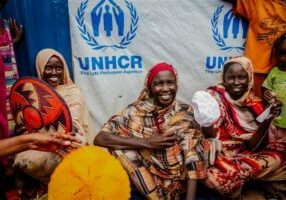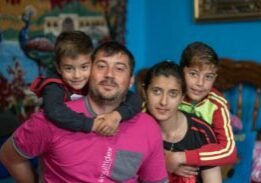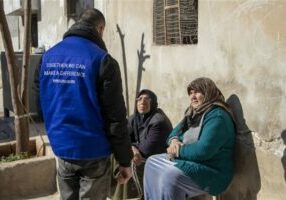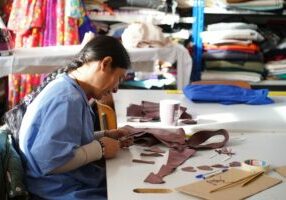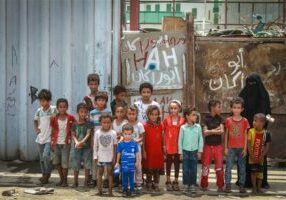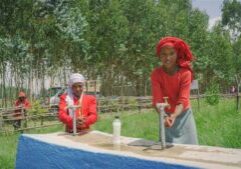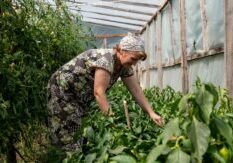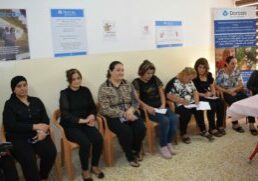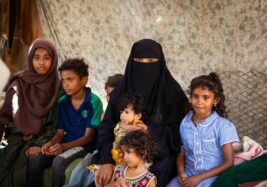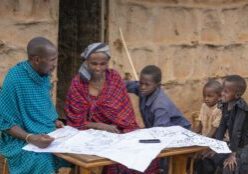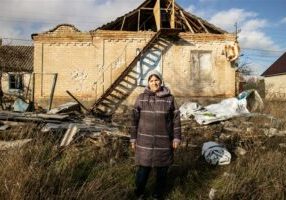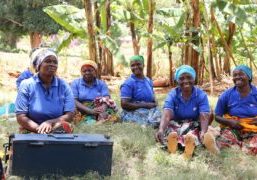Romania: Safeguarding the fundamental rights of older people and minority groups - and forging sustainable livelihoods
Romania is the first country where Dorcas became active - we visited in 1981 to support Christians persecuted by the Communist regime. While the situation has changed dramatically over the years, the legacy of oppression inflicted by Communist leader Nicolae Ceausescu remained long after the uprising which led to his defeat.
A sluggish developer in comparison to other eastern European nations, Romania took a significant step forward when it became one of seven countries to join Nato in 2004. Still, today, poverty, loneliness and abuse endure - most felt by marginalised groups (such as Roma) and the countries' large older population.
Poor, rural communities are at the heart of these problems, unaided by depleted labour markets and high rates of emigration as young people up-and-leave in search of new opportunities.
Population
Romania has a population of 18.8 million people
Poverty
Over a quarter of Romania's population lives below the poverty line
Our Reach
In 2022 17,973 people took part in our programmes
What we do in Romania
Overview
Dorcas works inside Romania to change mindsets and promote the social inclusion of older people, minority groups and rural communities - pushed to the fringes. We enlist the help of local actors; an approach that sees individuals work together to build a better future - both for themselves and their community. Dorcas has been active in Romania for over 35 years.
Safety Nets for older people
We set up networks to mobilise local people - especially youth - to take care of older persons and give them a better quality of life. Our annual Blue Bucket Campaign is just one example and sees community-members across the country deliver food parcels to vulnerable older households.
Roma Inclusion
We support vulnerable Roma children to develop their potential and restore and strengthen their relationship with parents. We also educate the full family unit - particularly women and children - on the biggest threats they face, including human trafficking and domestic violence. By doing so, our work also serves to give Roma people a voice and prevent abuse.
Social Entrepreneurship
Through our Farmer Field School, we train farmers in sustainable agriculture so that they can secure a stable income, provide for their families and grow their business - all while contributing to their community's long-term food needs. Our Suckar Center project also provides Roma women with a viable work avenue - here they sew clothing and sell products to the local community.
Ukraine crisis: Dorcas Romania’s targeted response
As soon as the full-scale war in Ukraine started, Dorcas Romania set up a humanitarian aid project for refugees. ‘We knew that many Ukrainians who feared for their lives would come to neighbouring countries’, says country director Attila Daray. ‘Right now, Romania has about 550,000 refugees, the second-largest number after Poland. This is a completely new situation. We’ve never had a refugee crisis like this before.’
During the first days of the war, many organisations and churches went to the borders with food and other products. Dorcas has a large network in Romania, and right from the start, it focussed on a targeted response such as mobilising partners and volunteers to help provide refugee shelters.
Roma Inclusion Tarian - Finding Common Ground
Roma, also known as Romani, are a traditionally itinerant people whose journey began in northern India. Today, they live all over the world - mainly in Europe. Yet, due to their travelling status (often referred to derogatively as 'Gypsies') and lack of personal documentation, Roma continue to face arguably the worst social stigma on the continent.
In Romania, despite being the largest ethnic minority in the country, some of the most abject poverty and human rights issues remain with the Roma people. They are worse off in almost every aspect of life, with an estimated 90 per cent of Roma households facing material deprivation.
And though a national strategy by the EU commands the Romanian government to better integrate its Roma population, progress is slow. Dorcas believes that more needs to be done to give this ancient minority an equal place in society.
Meet our Country Director…
Attila Daray - Country Director Romania
"I grew up in northwestern Romania. My family belonged to a minority group; we were oppressed and lived in poverty. Today, many minorities face the same problems. Officially, 800,000 Roma live in Romania, but in reality I know that figure is in the millions. And yet, poverty rates for Roma range between four and five times that of non-Roma. Dorcas works on removing barriers and doing away with stigmatisation. Our programmes see Roma and Romanian women work together so that they can form bonds and discover that their prejudices about each other are often misinformed. Helping people stand side-by-side with each other is our duty to God."
News
Our partners
Programme Partners
- ASA Association, Tărian
- Betania Christian Center, Oradea
- Diakonia Christian Foundation, Cluj-Napoca
- 'Fileo' Community Development Association, Botoșani
- Lord’s Army Association, Gherla
- Pro Christo et Ecclesia Association (CE) - Targu Mureș, Zalău, Oradea
- 'Pentru Tine' Christian Association, Botoșani
- 'Taina Milei' Community Development Association, Vaslui
Strategic Partners and Donors
- FOND
- Roma Workers Network
- ADV - Social Economy Network
- PROTECT
- CPOE
- RENASIS
Contact Dorcas Aid Romania
Address
Str. Blajului 27, Cluj-Napoca, Romania
Phone number
(+40) 0264 416336
Email address
office@romania.dorcas.org
